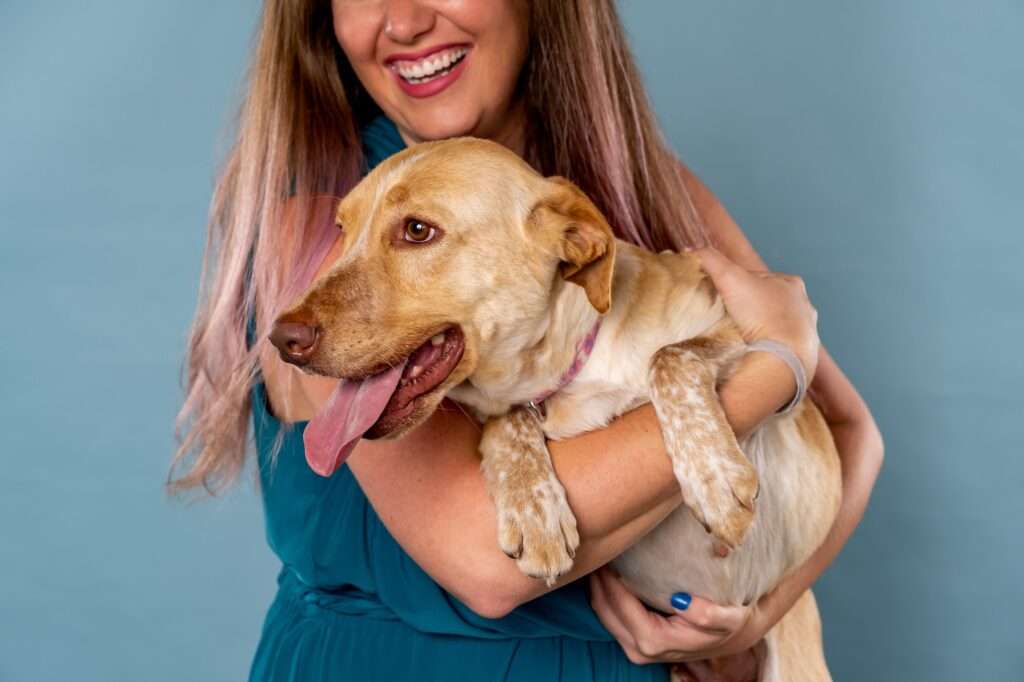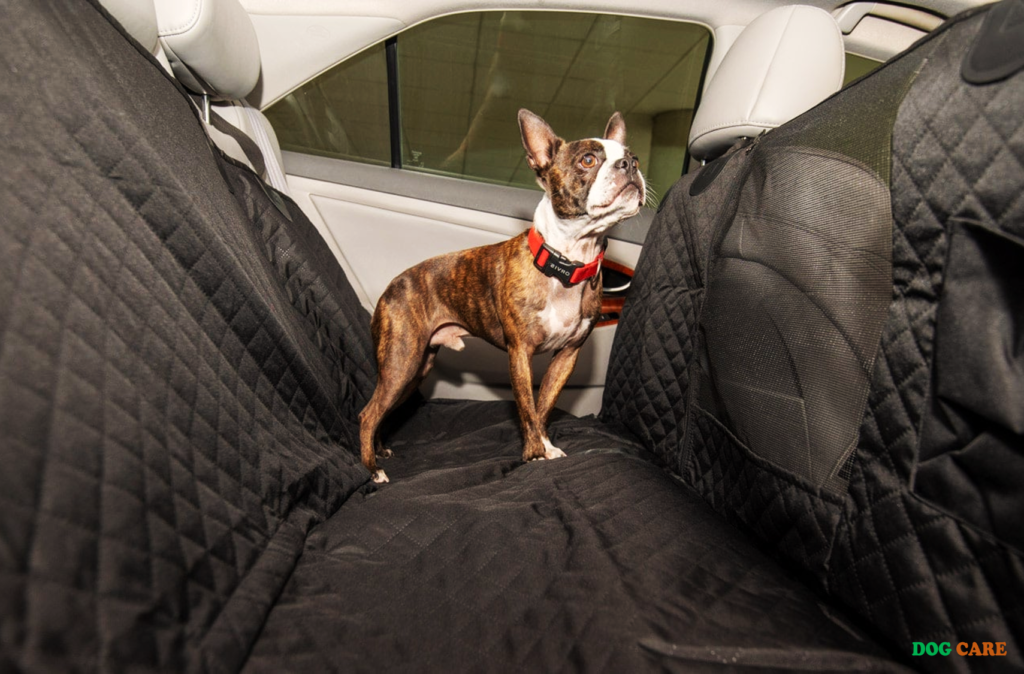Signs of Overfeeding Newborn Puppy include bloating, vomiting, diarrhea, and a distended stomach. It is important to monitor their food intake carefully to avoid these issues and ensure their healthy growth.
Properly caring for a newborn puppy requires attention to various aspects, including feeding. While it’s vital to provide them with enough nourishment, overfeeding can lead to detrimental consequences. Recognizing the signs of overfeeding in these delicate creatures is crucial to their well-being.
This article will explore the unmistakable indicators of overfeeding in a newborn puppy, offering valuable insights for pet owners and breeders alike. By understanding and heeding these signs, you can ensure that your puppy receives the right amount of food, promoting optimal development and preventing potential health complications. Let’s dive in and discover how to avoid the pitfalls of overfeeding a newborn puppy.
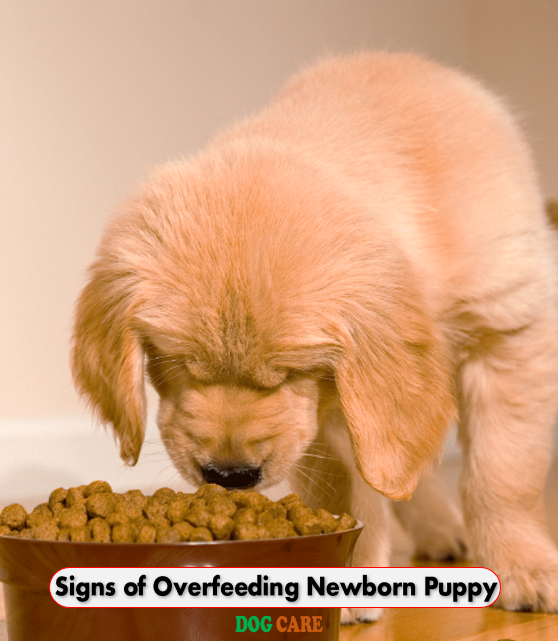
Understanding Overfeeding – Signs of Overfeeding Newborn Puppy
Overfeeding newborn puppies can have detrimental effects on their health. Look out for signs such as bloating, vomiting, and excessive weight gain to ensure proper nutrition and avoid complications.
Understanding Overfeeding in Newborn Puppies What is overfeeding? Overfeeding occurs when a newborn puppy consumes more food and calories than its small body can handle. This can happen when well-intentioned owners try to ensure their puppies are well-fed, but end up unintentionally overfeeding them. Newborn puppies have tiny stomachs and require small, frequent feedings to grow and develop properly. Risks and potential health problems Overfeeding newborn puppies can lead to several risks and potential health problems.
These include:
1. Puppies becoming overweight or obese, which can lead to joint and mobility issues later in life.
2. Digestive problems such as diarrhea or constipation may arise from an overloaded stomach.
3. Puppies may struggle to regulate their body temperature and may become prone to overheating due to excessive fat deposits.
4. An increased risk of pancreatic and liver diseases due to the strain on these organs caused by excessive consumption.
5. In severe cases, overfeeding can even lead to a condition called bloat, which is a life-threatening emergency requiring immediate medical intervention. Ensuring proper feeding practices To ensure that you’re not overfeeding your newborn puppies, it’s important to follow these guidelines:
1. Consult your veterinarian: Seek expert advice to determine the appropriate amount and frequency of feeding for your specific breed of puppies. Each breed and individual may have unique needs.
2. Measure the food: Use a scale or a measuring cup to accurately portion out the correct amount of food. This will help prevent overfeeding and ensure that your puppies are getting the right nutritional balance.
3. Establish a feeding schedule: Feed your puppies small, frequent meals at regular intervals throughout the day. This will help prevent them from consuming too much food at once.
4. Monitor their weight: Regularly weigh your puppies to ensure they are growing at a healthy rate. If you notice any rapid weight gain, it may be a sign of overfeeding.
5. Observe their behavior: Pay attention to your puppies’ behavior after feeding. If they appear uncomfortable, have difficulty moving, or show signs of an upset stomach, it may indicate that they have been overfed. Understanding and preventing overfeeding in newborn puppies is crucial for their overall health and well-being. By following these guidelines, you can ensure that your puppies receive the proper nutrition they need without putting them at risk of overfeeding-related health problems.
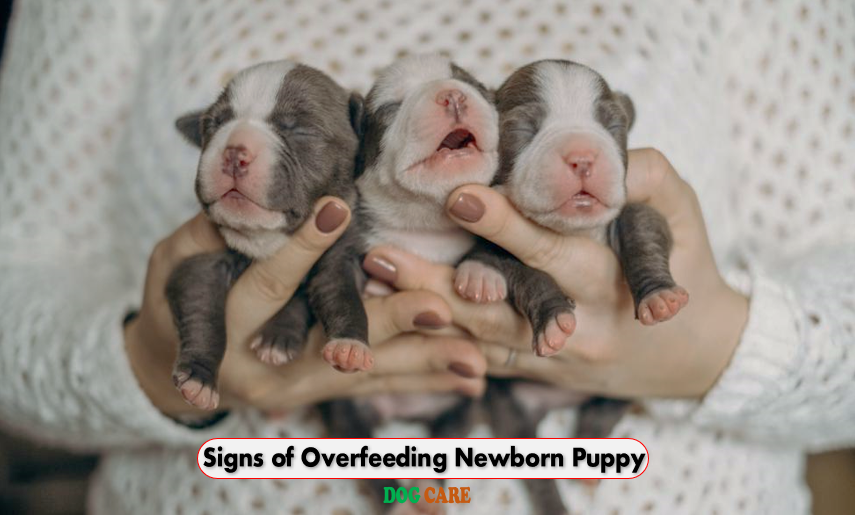
Symptoms And Signs Of Overfeeding Newborn Puppy
Overfeeding a newborn puppy can have serious consequences on their health and growth. It’s important to pay attention to the symptoms and signs of overfeeding to ensure your puppy’s well-being. In this article, we will discuss some key indicators that your puppy may be getting too much food.
Rapid Weight Gain
Rapid weight gain in a newborn puppy can be a clear sign of overfeeding. While puppies are expected to gain weight as they grow, an excessive increase in weight within a short period may indicate that they are consuming more food than necessary. It is important to strike a balance between nourishing your puppy and overindulging them.
Distended Belly
A distended belly is another visual cue that your puppy might be overfed. If you notice that your puppy’s abdomen appears swollen or bloated, it could be a sign that they are taking in more food than their tiny stomach can handle. While a slightly rounded belly is normal, excessive distension could indicate overfeeding.
Frequent Vomiting
Vomiting is never a good sign, especially when it occurs frequently in a newborn puppy. If your puppy vomits regularly after meals, it could be a sign that their delicate digestive system is overwhelmed. Overfeeding can put a strain on their stomach, leading to discomfort and vomiting. It’s essential to feed your puppy small, regular meals to avoid such issues.
Diarrhea
Diarrhea is another symptom that may indicate overfeeding in newborn puppies. Too much food can cause an upset stomach and lead to loose or watery stools. If you notice that your puppy’s stools are frequent, loose, or have an unusual consistency, it’s important to reevaluate their feeding routine and consult with a veterinarian if the issue persists.
Lethargy And Weakness
Overfeeding can also result in lethargy and weakness in newborn puppies. When their small bodies are overloaded with excessive food, it can make them sluggish and lacking in energy. If your puppy appears more tired than usual, has difficulty moving, or seems weak, it could be a sign that they are being overfed. Adjusting their feeding schedule and portion sizes can help restore their vitality.
Preventing Overfeeding
Recognize the signs of overfeeding your newborn puppy to prevent potential health issues. Watch for excessive weight gain, bloating, and digestive problems, ensuring your puppy’s diet remains balanced and appropriate for their development.
Establish A Feeding Schedule
It is essential to establish a feeding schedule for your newborn puppy to prevent overfeeding. Feeding them at regular intervals throughout the day helps regulate their food intake and prevents them from eating too much at once. A feeding schedule also helps in maintaining their digestive system and prevents any discomfort or health issues. Make sure to allocate specific times for meals, and stick to them consistently.
Learn The Appropriate Portion Sizes
Learning the appropriate portion sizes for your newborn puppy is crucial to prevent overfeeding. It is important to feed them the right amount of food for their age, breed, and size. Overfeeding can lead to obesity, which can cause various health issues for your puppy in the long run. Consult your veterinarian or a professional breeder to determine the correct portion sizes based on your puppy’s specific needs.
Avoid Overindulging The Puppy
When it comes to feeding your newborn puppy, it’s essential to avoid overindulging them. Understand that puppies have small stomachs, and giving in to their begging or pleading eyes can lead to excessive food intake. Overindulging can not only result in overfeeding but also encourage undesirable behaviors such as food aggression or begging. Stick to the recommended portion sizes and avoid giving too many treats or table scraps.
Consult With A Veterinarian
Consulting with a veterinarian is crucial in preventing overfeeding and ensuring the overall health of your newborn puppy. A veterinarian can provide valuable guidance and recommendations based on the specific needs and requirements of your puppy. They can help you create a customized feeding plan and monitor your puppy’s growth and development. Regular check-ups allow the veterinarian to assess if your puppy is receiving adequate nutrition without being overfed.
In conclusion, preventing overfeeding in your newborn puppy is of utmost importance for their overall health and well-being. By establishing a feeding schedule, learning the appropriate portion sizes, avoiding overindulgence, and consulting with a veterinarian, you can ensure your puppy receives the right amount of nutrition without overfeeding. Remember, a well-fed puppy is a happy and healthy one.
What To Do If Your Puppy Is Overfed
Is your newborn puppy showing signs of overfeeding? Look out for symptoms like bloating, excessive weight gain, and diarrhea. If you suspect overfeeding, consult a veterinarian for guidance on adjusting their diet and portion sizes.
Seek Veterinary Advice
If you suspect that your puppy is being overfed, it is crucial to seek veterinary advice as soon as possible. Veterinarians are the experts when it comes to animal health and they will be able to provide you with the best guidance and advice tailored to your puppy’s specific needs.
Implement Dietary Changes
One of the first steps to take if your puppy is overfed is to implement dietary changes. This may include adjusting the portion sizes or changing to a different type of puppy food that is specifically formulated for their age and breed. It is important to consult with your veterinarian before making any major changes to ensure that you are providing the most appropriate diet for your puppy’s needs.
Monitor The Puppy’s Weight Closely
Regularly monitoring your puppy’s weight is essential when dealing with overfeeding. Keep a close eye on their weight and body condition and make adjustments to their feeding routine accordingly. Your veterinarian can provide guidance on how often you should weigh your puppy and what their ideal weight range should be.
Provide Adequate Exercise
Exercise is not only important for puppies’ physical health but also helps to manage their weight. Ensure that your puppy gets enough exercise based on their age and breed. Engage them in regular playtime, walks, and mental stimulation activities to help burn off excess calories and maintain a healthy weight.
Stick To The Recommended Feeding Guidelines
To prevent overfeeding, it is crucial to stick to the recommended feeding guidelines provided by the puppy food manufacturer. These guidelines are typically based on the puppy’s age, weight, and breed. Avoid the temptation to give excessive treats or table scraps as this can contribute to overfeeding. Stick to the recommended feeding amounts to ensure your puppy receives the right balance of nutrition without excessive calories.
In summary, if you suspect that your puppy is being overfed, seeking veterinary advice is essential. Implementing dietary changes, monitoring your puppy’s weight closely, providing adequate exercise, and adhering to the recommended feeding guidelines are crucial steps to take to address overfeeding. By taking these actions, you can help your puppy maintain a healthy weight, promoting their overall well-being.
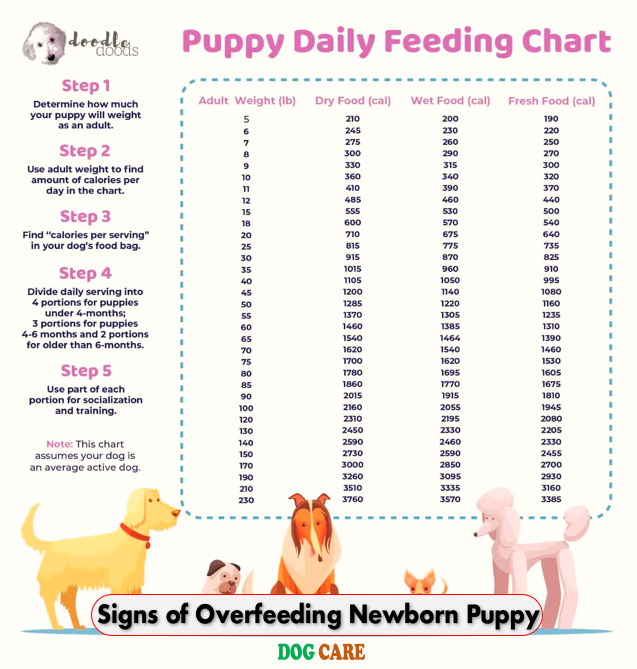
Frequently Asked Questions On Signs Of Overfeeding Newborn Puppy
How Do I Know If I Am Overfeeding My Newborn Puppy?
Monitor the puppy’s weight gain, look for bloating, excessive whining, and diarrhea.
Can Overfeeding My Puppy Lead To Health Issues?
Yes, overfeeding can result in obesity, digestive problems, and an increased risk of development issues.
What Quantity Of Food Is Appropriate For A Newborn Puppy?
Consult with a veterinarian to determine the appropriate amount of formula or milk replacement based on the puppy’s age and weight.
Can Overfeeding Cause Discomfort For Newborn Puppies?
Overfeeding can lead to discomfort, unease, and an upset stomach, causing the puppy to be restless.
How Can I Avoid Overfeeding My Newborn Puppy?
Follow a feeding schedule, measure the food accurately, and keep track of the puppy’s weight to avoid overfeeding.
Conclusion
Being aware of the signs of overfeeding in a newborn puppy is crucial for their health and well-being. Watch out for excessive weight gain, bloating, diarrhea, and vomiting, as these could indicate that you are overfeeding your furry friend. By providing the right amount of food and maintaining a balanced diet, you can ensure that your puppy grows up strong and healthy.
So, pay attention to their cues and consult a veterinarian if you have any concerns.

